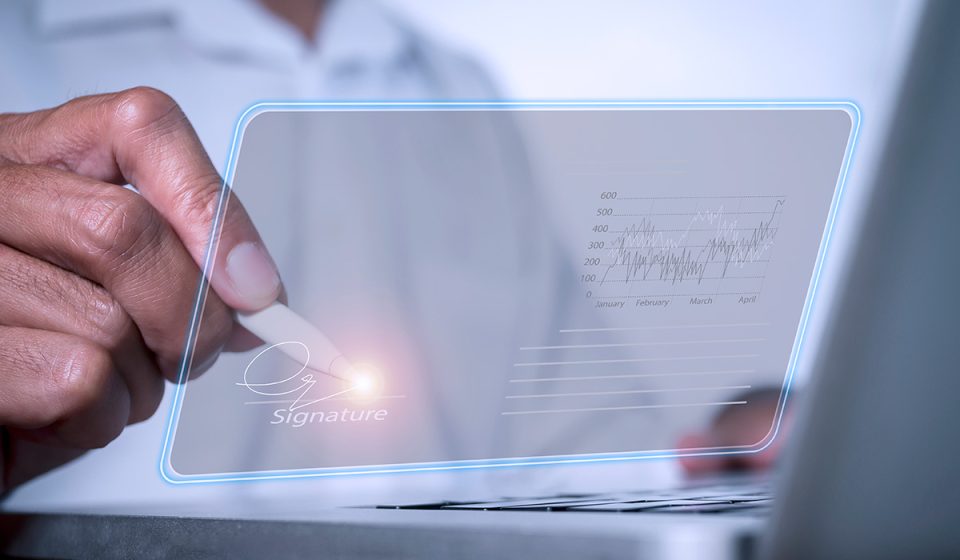
How E-Signatures Foster Informed Decision-Making
In our digital-first world, speed and convenience are no longer luxuries — they’re expectations. E-signature technology has emerged as one of the most transformative tools in modern business, replacing paper-based processes with digital workflows that are faster, greener, and more efficient. But beyond the obvious benefits of time-saving and accessibility, e-signatures also play a powerful role in fostering informed decision-making.
Table Of Content
- What Are E-Signatures?
- The Traditional Problem: Paper-Based Blind Spots
- 6 Ways E-Signatures Support Informed Decision-Making
- 1. Improved Transparency and Access
- 2. Audit Trails and Tracking
- 3. Interactive Document Features
- 4. Reduced Time Pressure
- 5. Integrated Review and Approval Workflows
- 6. Mobile Access for Flexibility
- E-Signatures vs. Paper-Based Signing – Decision-Making Impact
- E-Signatures in High-Stakes Industries
- ✔ Real Estate
- ✔ Healthcare
- ✔ Finance
- ✔ Legal Services
- Security = Confidence
- Final Thoughts
From contract negotiation to final approval, e-signatures streamline communication, ensure transparency, and give all parties the tools they need to make better, more confident choices.
What Are E-Signatures?
Electronic signatures (or e-signatures) are a legally recognized method for indicating agreement to a document or contract electronically. Whether you’re clicking “I agree,” drawing your signature on a screen, or using secure digital certificates, the end result is the same: a validated, traceable agreement.
E-signatures are legally enforceable in most jurisdictions under laws like the U.S. ESIGN Act, UETA, and the EU’s eIDAS regulation — provided certain conditions are met, such as clear consent, proper authentication, and record-keeping.

The Traditional Problem: Paper-Based Blind Spots
Paper-based signatures often come with several issues that limit informed decision-making:
- Lack of clarity: Important terms are buried in lengthy printouts.
- Version control issues: Stakeholders may not be working from the same version of a document.
- Delays in communication: Reviewing and signing paper documents takes time and effort.
- Human error: Manual processes increase the chance of missed pages, incorrect signatures, or unsigned fields.
These issues create bottlenecks and misunderstandings — conditions where poor decisions are more likely to occur.
6 Ways E-Signatures Support Informed Decision-Making
1. Improved Transparency and Access
E-signature platforms provide instant access to the most current version of a document. Stakeholders can review, compare changes, and consult with advisors before signing.
Key benefit: Everyone has equal, timely access to the same information, which minimizes confusion or misinterpretation.
2. Audit Trails and Tracking
Every step of the signing process is logged with timestamps, IP addresses, and user activity. This digital paper trail provides unmatched clarity and accountability.
Key benefit: Decision-makers can revisit the document history to understand when, how, and by whom each decision was made.
3. Interactive Document Features
E-signature platforms often include tools such as:
- Tooltips explaining key terms
- Pop-up videos or help text for complex clauses
- Required initial boxes to confirm understanding
Key benefit: These features turn passive readers into active participants, reinforcing comprehension before commitment.
4. Reduced Time Pressure
By eliminating in-person scheduling and physical delivery, e-signatures give recipients more time to review documents thoroughly. Parties can consider terms at their own pace, consult legal counsel, or request revisions.
Key benefit: More thoughtful, less rushed decisions.
5. Integrated Review and Approval Workflows
Modern e-signature tools integrate with CRMs, HR platforms, and project management systems. This enables teams to collaborate on contracts, leave comments, or trigger approval chains before the final signature.
Key benefit: Collaborative decision-making is supported with built-in feedback loops.

6. Mobile Access for Flexibility
E-signature platforms work across desktops, tablets, and smartphones. Stakeholders can review and sign documents while traveling or working remotely — without sacrificing their ability to consult and verify information.
Key benefit: Informed decisions can be made from anywhere, improving agility without sacrificing due diligence.
E-Signatures vs. Paper-Based Signing – Decision-Making Impact
| Feature | E-Signatures | Paper-Based Signing |
|---|---|---|
| Document version control | Real-time updates and access | High risk of outdated or conflicting versions |
| Time to sign | Minutes to hours | Days to weeks |
| User guidance | Interactive prompts and error prevention | Manual navigation and prone to mistakes |
| Legal audit trail | Automatically recorded | Often missing or fragmented |
| Collaboration and comments | Built-in collaboration tools | Requires separate communication methods |
| Accessibility | Anywhere, any device | Restricted to in-person or postal exchange |
E-Signatures in High-Stakes Industries
The value of e-signatures for informed decision-making is especially evident in fields such as:
✔ Real Estate
Buyers can review disclosures, inspection reports, and closing documents on their own schedule, increasing confidence and compliance.
✔ Healthcare
Informed consent forms can include videos and educational materials, ensuring patients understand what they’re signing.
✔ Finance
Loan agreements and disclosures can be layered with explanation tools, risk warnings, and compliance checks.
✔ Legal Services
E-signature platforms help attorneys and clients review terms line-by-line, with secure authentication and timestamped approvals.
Security = Confidence

Secure e-signature platforms use encryption, identity verification, and tamper-proof seals. Knowing a signature cannot be forged or modified once submitted allows signers to trust the process — and their decisions.
Popular platforms like DocuSign, Adobe Acrobat Sign, and HelloSign also comply with GDPR, HIPAA, and other regulatory frameworks, making them suitable for industries with strict legal requirements.
Final Thoughts
While e-signatures are often celebrated for their speed and convenience, their real superpower lies in enhancing informed, confident decision-making. By providing transparency, guidance, flexibility, and security, they empower individuals and businesses alike to move forward with clarity and assurance.
As more organizations embrace digital transformation, e-signature solutions are no longer just a technological upgrade — they’re a strategic advantage. They reduce risk, enhance compliance, and, most importantly, ensure that decisions are made with full understanding and intent.


